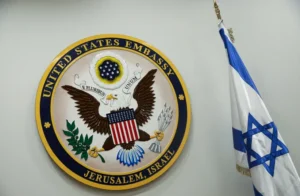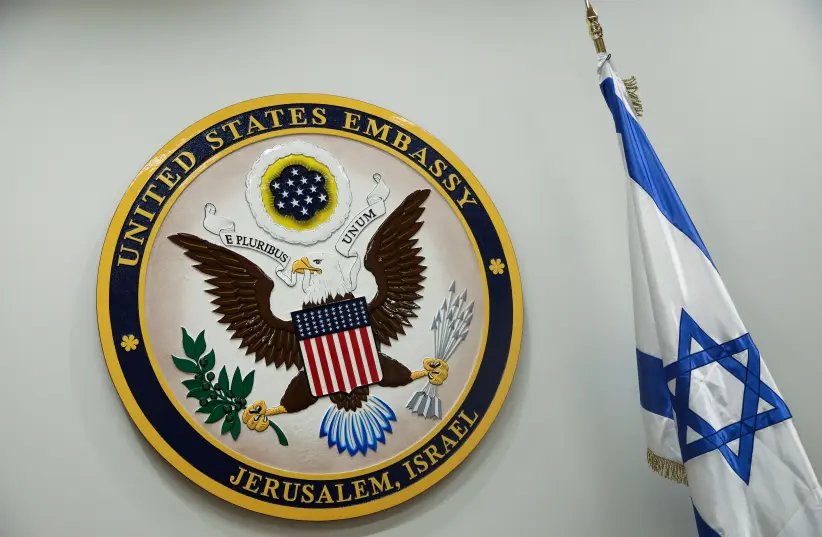With the Knesset set to be dissolved next week, Interior Minister Ayelet Shaked still hopes to pass the laws as part of what is called “cleaning the table.”

The Knesset’s impending dissolution and upcoming election are likely to delay Israel’s entry into the US Visa Waiver Program, which would allow Israelis to visit the US without a visa.
Interior Minister Ayelet Shaked and US Ambassador to Israel Tom Nides have said that Israel could enter the program in early 2023, but that is less likely in light of the election.

Israel made significant progress in the past year, starting with former ambassador to the US Gilad Erdan, whose work the new government enthusiastically adopted last year; US President Joe Biden and Secretary of State Antony Blinken mentioned that the administration would also push for a visa waiver for Israel when Prime Minister Naftali Bennett visited Washington in September.
Interior Minister Ayelet Shaked took action, working with the Shin Bet (Israel Security Agency) to authorize Palestinian-Americans to use Ben-Gurion Airport en route to visit the West Bank. The ministry also launched a campaign to lower the rate of visa refusal for Israelis to below 3%, which was one of the obstacles to Israel joining the 40 other countries in the program; most of the refusals were due to invalid passport photos or registration errors.
The agenda
Shaked also worked to put necessary legislation on the Knesset’s agenda, such as allowing the US access to the passenger names record and advanced passenger information, and amending privacy aspects of the criminal code to share information on Israelis with a criminal record.
With the Knesset set to be dissolved next week, Shaked still hopes to pass the laws as part of what is called “cleaning the table,” by which the Knesset passes non-controversial government-backed legislation in the final days before an election is called.
“There is a chance to pass the relevant laws,” Shaked’s spokeswoman said. “She asked the Agreements Committee [between the coalition and opposition] to pass these laws by agreement.”
Shaked “very much hopes they will cooperate, because this isn’t something that’s Right or Left; it’s something that serves all citizens of Israel.”
However, the Likud said on Wednesday that it is unwilling to cooperate on any bills, making the legislation unlikely to advance.
A senior US Embassy official said that “Israel made more progress on getting into the Visa Waiver Program in the past six or seven months than they had in the previous years that they were trying. I give a lot of credit to the current government for putting their nose to the grindstone – providing data, doing site visits, working on the substantive issues.
“The fact that there is legislation on the agenda is a testimony to how hard the government has been working to resolve the outstanding issues,” the official said.
“The fact that there is legislation on the agenda is a testimony to how hard the government has been working to resolve the outstanding issues.”
The official
Asked if intrusive questioning and profiling by Israeli security at Ben-Gurion Airport remains an issue, the official said yes, but that it is not a specific requirement of the Visa Waiver Program.
“Our hope is that when Israel joins that some of the scanning and targeting of passengers lists will make it easier to screen people when they come in,” he said.
The issue of waiving tourist for Israelis to visit the US and vice versa has been raised repeatedly for decades. The US never agreed to advance it, partly because Israel rejects many Palestinian-Americans who want to enter the country and partly because the American refusal rate for Israelis applying for a visa is higher than the threshold for a waiver.
Israelis have one of the lowest visa-overstay rates in the world, at 0.5%, when the maximum for a visa-waiver agreement is 2%, four times as much.
Progressive Democrats in Congress called to keep Israel out of the Visa Waiver Program earlier this month.
Reps. Rashida Tlaib, Alexandria Ocasio-Cortez, Betty McCollum and Marie Newman pointed to “disparate treamtent” of Palestinian-Americans entering Israel.
New guidelines from the Coordinator of Government Activities in the Territories (COGAT), the part of the IDF governing Judea and Samaria, would only allow Palestinian higher education institutions to bring in lecturers from abroad if they are designated as essential and have a doctorate and caps the number of such visas granted, limiting how long they are valid.
The members of Congress said the new entry rules “further complicates and formalizes previous written and unwritten entry restrictions and requirements for Americans wishing to visit, do business, reunite and reside with their Palestinian families, work or volunteer in those parts of the occupied West Bank under Palestinian Authority (PA) civil and security administration, or study or teach at Palestinian academic institutions.”
The US Embassy Official sought to clarify that COGAT’s guidelines have nothing to do with the US Visa Waiver Program.

